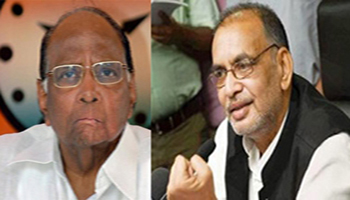
While Pawar interacted only with the experienced and veterans, Radhmohan is open to one and all. Indian Cooperative has learnt that the latter is more comfortable with non IAS officers who can introduce him to the nuances of cooperatives and their labyrinthine politics.
The difference lies in the background of the two leaders. While Pawar was himself a hard-boiled cooperator, Singh has little exposure to this model of economic development. Being a cooperator from the grassroots Pawar naturally had a battery of friends and foes and took interest in the politics and election of each and every national cooperative federation.
Mohan, on the other hand is dependent on Jhandewalan, the RSS headquarters in Delhi. It is said that for appointing people as government nominees in cooperative Boards he looks up to the Sangh headquarters for guidance. Not only this, it is being rumoured in the cooperative circles that in the appointment of his trusted aides too he waits for clearance from the RSS.
But Radhamohan is credited with introducing transparency in the Ministry. His Face book account is filled with promises of meeting people in different parts of India. The FB posts give detailed information about his impending visits so people could keep themselves free. It seems he is sincerely interested in ushering in a true democracy in the cooperation ministry after a long gap.
But Radha Mohan may not find it easy to zap the legacy of Sharad Pawar. The latter ,sort of achieved immortality by introducing the 97th amendment , a game changer on the country’s cooperative scenario.
Radha Mohan can beat Pawar only by getting the historic amendment implemented by the states that do not look eager so far. Also if he can cleanse cooperatives and make them a people movement in the true sense of the world, history may place him above Pawar. He has begun well and Indian Cooperative wishes him all the best.